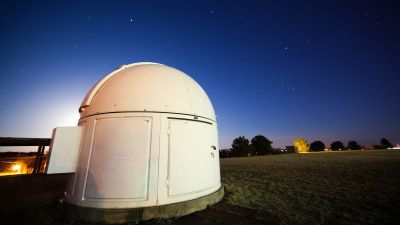
Pre-Medical
Few career paths require such relentless tests of resolve and commitment as the path to becoming a doctor. However, those who feel the call to become physicians will be needed more than ever as our population increases and ages. As a physician, you will use science and technology to diagnose and care for patients of all ages who are ill or have been injured. You will work to keep people healthy and heal them when they aren’t. Being a doctor takes knowledge and empathy. As Christians, it is our responsibility to care for the physical and spiritual needs of others.
Concordia Nebraska’s pre-med program can help prepare you for the rigorous standards of medical school admissions, as well as helping you work through the application process and MCAT test preparation and making sure you have the academic preparation and experience necessary to get into your choice of med school and, eventually, career.
Play a critical role in keeping the population healthy!
Program Highlights
WHY STUDY PRE-MED AT CONCORDIA?
At Concordia University, Nebraska, you will receive a liberal arts background in chemistry, biology and the physical sciences needed to succeed in medical school. As a pre-med student at Concordia, you’ll get hands-on lab experience, cadaver dissection and mentoring from expert science faculty. You’ll also have the opportunity to intern and job-shadow with local physicians.
Accreditation
Concordia University, Nebraska is accredited by the Higher Learning Commission, a regional accreditation agency recognized by the U.S. Department of Education.
Micah Scholars Pre-Health Scholars Program
Micah Pre-Health Scholars is designed to help students be successful in their healthcare vocations through hands-on experiences, community support and graduate or professional school preparation.
Degree Goals
A pre-medical program graduate from Concordia University, Nebraska will be able to:
- Apply foundational concepts in general education to health-related topics.
- Demonstrate knowledge of different scientific disciplines.
- Use general, scientific and technical knowledge effectively.
- Demonstrate interpersonal and communication skills in both written and oral form.
Career Outcomes
Physician
- Prevent, diagnose and treat various diseases to improve their patients’ overall health
- Diagnose and treat specific illnesses and health issues related to an area of expertise, such as cardiology, pneumology, radiology or oncology
Physician Assistant
- Practice medicine with the supervision of licensed physicians, providing patients with services ranging from primary care to very specialized surgical care
- Work closely with a doctor, perform physical examinations, diagnose illnesses, assist in surgical operations and perform various medical procedures
Anesthesiologist
- Give patients medication so they don’t feel pain when they are undergoing surgery
- Monitor patients during surgery, controlling heart rate and rhythm, breathing, blood pressure, body temperature and fluid balance, as well as managing the patient’s level of pain
FAQs
What major should I select as a pre-med student?
You should choose a major that you like.
Most students choose to major in the natural sciences, like biology or chemistry, but you should major in a subject that you’re interested in and pursue the extracurricular activities that back up your interests.
On average, how many years do you spend studying to be a doctor?
To become a doctor, you will need to complete four years of undergraduate study, four years of medical school, three to seven years of residency and maybe some fellowship. On average, this means eight years of study, and probably at least four more years of training. If you’re interested in a surgical specialty, this can take five or six years.
Related Programs

Biology
With a degree in biology from Concordia Nebraska, you will be prepared to begin a career in the biological sciences right away, or to continue your education in graduate, medical, dental or veterinary school. As a biology major at Concordia, you learn essential skills such as time management and mastering complex material, as well as studying more in-depth topics such as microbiology, human anatomy and immunology to give you the knowledge you need to be successful in the field of biology.

Chemistry
A degree in chemistry from Concordia University, Nebraska expands your understanding of general chemistry and gives you the practical, hands-on experience you need to continue a career in chemistry after graduation. Your classroom and chemistry lab experience will help you on your journey to use your passion for chemistry to serve in healthcare, industry, research and more.

Physical Science
A degree in physical science from Concordia University, Nebraska will give you an interdisciplinary background in the physical sciences including physics, chemistry and math. Many students choose a physical science major as a broad-based education because they want to teach high school science, chemistry or physics, and a bachelor’s degree in physical science can help equip you with the comprehensive physical science skills you need to educate your future students.
Apply Request Info Information Sessions
1 Recent graduates attending graduate school or employed within six months of graduation.